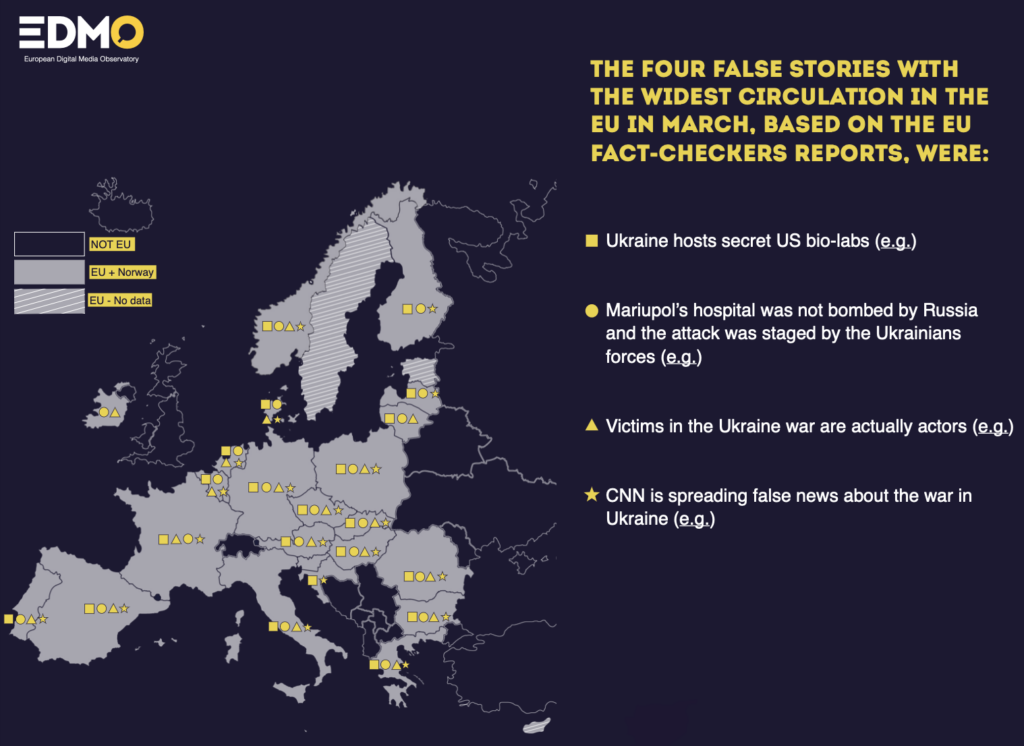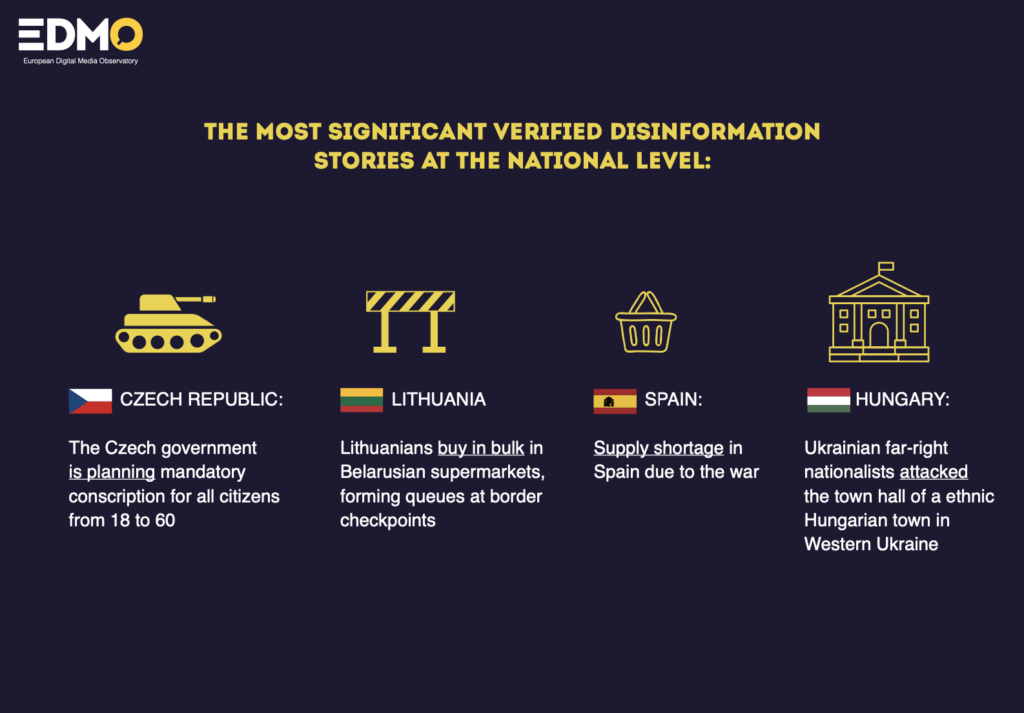Ukraine-related disinformation in March 2022 was the biggest disinformation phenomenon ever recorded by the EDMO monthly briefs
The 20 organizations* part of the EDMO fact-checking network that contributed to this brief published a total of 1.620 fact-checking articles in March 2022. Out of these articles, 959 (59%) focused on Ukraine-related disinformation.
This percentage is the highest ever recorded by these briefs regarding the share of a single topic on the total disinformation detected. The previous record was about COVID-19-related disinformation, which weighted for 51.5% in December 2021.
The situation in Ukraine strongly mobilized the fact-checking community and its coordination efforts.
Read in Italian HERE
Covid-19 related disinformation is almost vanishing
Out of the 1.620 fact-checking articles published in March by the 20 organizations* part of the EDMO fact-checking network that contributed to this brief, 144 (9%) focused on COVID-19-related disinformation.
The share is less than one third of the previous one, which was already the minimum ever recorded by these briefs.
The drop in the number of cases in the EU is only a partial explanation. The rise of a new, all- embracing topic like the war in Ukraine relegated the pandemic at the margins of public debate.

The 9 man narratives detected in disinformation circulating in the Eu in March are:
- Russian invasion of Ukraine is actually justified (e.g. there was a genocide of the Russian- speaking population in Donbass; NATO broke a deal signed with the Ussr in 1991; US bio-labs in Ukraine needed to be destroyed, etc.)
- Calumnying Volodymyr Zelensky (he is a Nazi, a satanist, a drug addict, a coward, etc.)
- Ukrainians and Ukrainian forces are largely Nazi
- Pro-Ukraine war propaganda (e.g. “Ghosts of Kiev” mythology)
- Western traditional media spread false news/ false images about the war (e.g. about the Bucha massacre or the Mariupol hospital bombing)
- Ukrainian refugees are violent, fascists, thieves etc.
- Humanitarian aid to Ukraine is useless (e.g., medicines and food are thrown away)
- Exaggerated russophobic sentiment in European countries
- Exaggerated negative economical consequences of the war and of the sanctions in Europe
These narratives are supported by many false news widely spread all across Europe, as detected also in EDMO’S Weekly Brief on Ukraine-related disinformation. The amount of identical or similar hoaxes detected simultaneously in different EU countries is unrivaled in previous briefs.
An alarming phenomenon, common to many EU countries, is the emergence of self-appointed “fact-checking” Russian outlets that spread Russian propaganda and disinformation.


